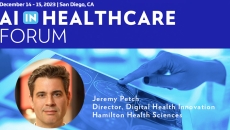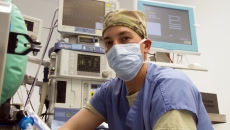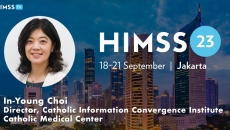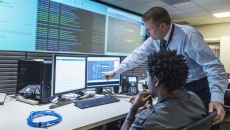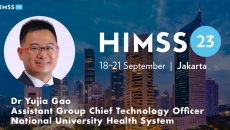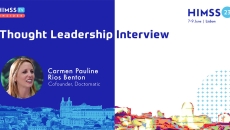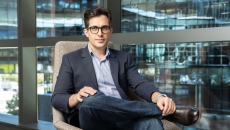Artificial Intelligence
Physicians need to critically assess the recommendations of AI to understand whether it’s picking up patterns in data or has made a mistake, says Jeremy Petch, director of digital health innovation at Hamilton Health Sciences, who is speaking at the HIMSS AI in Healthcare Forum.
American Medical Association President Dr. Jesse Ehrenfeld is a keynote speaker at the HIMSS AI in Healthcare Forum.
The rule of thumb is to have a human make final decisions, have software highlight when AI is involved and provide monitoring for outcomes in the workflow, says Sumit Rana, EVP of R&D reports at Epic.
The Catholic Information Convergence Institute at Catholic Medical Center in South Korea has integrated HIS data across its eight affiliated hospitals, says director In-Young Choi.
The Texas health system is also an investor in the company.
A six-month pilot using holomedicine technology in clinical practice and surgery resulted in unanimous positive support, says Dr. Yujia Gao, assistant group chief technology officer for the National University Health System.
The Spanish startup won the HIMSS23 Europe Startup PitchFest and is in conversations with hospitals in France, UK, Italy and Germany, says cofounder Carmen Pauline Rios Benton.
The AI-powered tools will increase transparency and access, says Cedar president Seth Cohen.
AI is not yet 100% accurate, with a tradeoff between risk and productivity for financial savings.
AI can detect patients who are at high risk even as they're in the ambulance on the way to the hospital, says Professor Oscar Lee, vice superintendent of China Medical University Hospital, a 2023 HIMSS Davies Award recipient.
